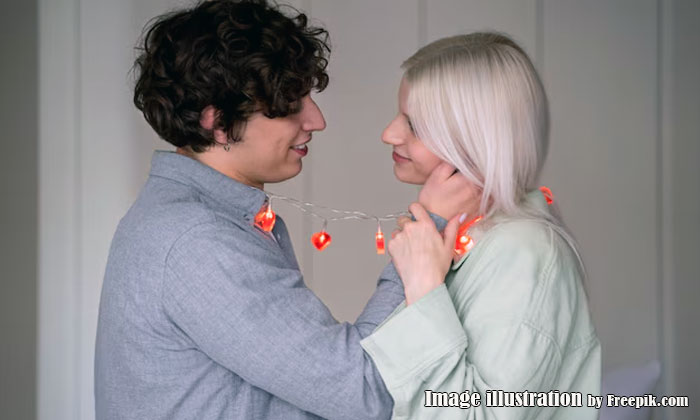
Healthy relationships are built on trust, respect, and mutual understanding. They encourage personal growth, emotional support, and shared joy. In contrast, toxic relationships can be draining, manipulative, and harmful, eroding self-esteem and emotional well-being over time. Recognizing the signs of a healthy relationship compared to a toxic one is crucial for maintaining your mental health and well-being.
In this article, we’ll explore key indicators of both healthy and toxic relationships to help you identify which category your relationship might fall into and provide guidance on how to nurture or protect yourself accordingly.
Signs of a Healthy Relationship
Healthy relationships are grounded in mutual respect, understanding, and trust. Both partners support each other’s individual growth while maintaining a strong, loving bond. Here are some key signs of a healthy relationship:
1. Communication is Open and Honest
In a healthy relationship, communication is clear, honest, and respectful. Both partners feel safe expressing their feelings, thoughts, and needs without fear of judgment or retaliation.
- Active listening: Both individuals take the time to listen to each other and show genuine interest in each other’s perspectives.
- Conflict resolution: Disagreements are handled calmly, with the goal of understanding each other rather than winning an argument.
- Transparency: Secrets or hidden feelings are avoided, and both partners share their thoughts openly, fostering trust.
2. Mutual Respect
In a healthy relationship, both partners value each other’s opinions, feelings, and boundaries. They treat each other with kindness and recognize each other’s worth as individuals.
- Respecting boundaries: Personal space, privacy, and boundaries are always honored.
- Valuing differences: While differences are inevitable, they are respected and embraced. There is no effort to change or control each other.
3. Trust and Security
Trust is the foundation of any strong relationship. Both partners feel secure in the knowledge that they can rely on each other.
- Reliability: Each partner can depend on the other to follow through on promises and commitments.
- Lack of jealousy or possessiveness: Healthy relationships are free of controlling behavior or constant suspicion.
- Emotional safety: Both individuals feel comfortable sharing vulnerabilities and expressing emotions without fear of being ridiculed or belittled.
4. Support for Personal Growth
A healthy relationship encourages both partners to pursue their individual dreams, goals, and passions. There is no pressure to change or conform to one another’s desires but rather a mutual support for each person’s personal growth.
- Encouragement: Both partners celebrate each other’s achievements and support each other during challenges.
- Independence: Both individuals maintain their own identities, hobbies, and friendships while sharing a meaningful connection.
5. Shared Values and Goals
A healthy relationship is strengthened by shared values, goals, and vision for the future. While it’s normal to have some differences, a common ground in core beliefs and long-term goals helps keep the relationship grounded.
- Alignment on important issues: Partners have similar values when it comes to major life decisions (e.g., finances, family, future plans).
- Teamwork: There is a sense of working together toward mutual goals and overcoming challenges as a team.
6. Affection and Appreciation
Affection is an important part of a healthy relationship, both emotionally and physically. Small gestures of love and appreciation foster a positive connection.
- Physical affection: Hugs, kisses, hand-holding, and other forms of touch are frequent and genuine.
- Verbal appreciation: Compliments and expressions of gratitude are common, creating an atmosphere of positivity.
Also read other relationship articles on Destyless:
- Balancing Individuality and Togetherness in a Relationship
- How to Support Your Partner During Stressful Times
- How to Build Trust After a Betrayal
Signs of a Toxic Relationship
Toxic relationships, in contrast, can be emotionally, physically, or mentally harmful. They are characterized by unhealthy behaviors such as manipulation, control, disrespect, and lack of support. Here are some signs of a toxic relationship:
1. Poor Communication and Emotional Manipulation
In a toxic relationship, communication is often ineffective or hurtful. One partner may use manipulation, guilt, or passive-aggressive behavior to control the other.
- Lack of listening: One or both partners may disregard each other’s opinions, dismissing feelings or thoughts without engaging.
- Gaslighting: One partner may manipulate the other into doubting their perception of reality, causing confusion and self-doubt.
- Blame-shifting: Instead of taking responsibility for their actions, one partner may constantly blame the other for the relationship’s problems.
2. Disrespect and Contempt
In a toxic relationship, disrespect becomes a common theme. One partner may belittle or criticize the other, eroding their self-esteem over time.
- Verbal abuse: Insults, name-calling, or constant criticism are used to tear down the other person.
- Ignoring boundaries: Personal boundaries are disregarded, leading to feelings of discomfort or violation.
- Disrespectful behavior: There may be a pattern of ignoring the other person’s feelings, needs, or desires.
3. Lack of Trust and Insecurity
Toxic relationships are often marked by mistrust, jealousy, and insecurity. One or both partners may feel constantly threatened or uncertain about the relationship.
- Constant suspicion: One partner may frequently accuse the other of infidelity or dishonesty without cause.
- Controlling behavior: One partner may try to control the other’s actions, such as dictating who they can see, where they can go, or what they can do.
- Emotional instability: There may be an ongoing sense of unease or anxiety due to unpredictable behavior from one partner.
4. No Support for Personal Growth
In a toxic relationship, personal growth is often stunted. One partner may feel pressured to conform to the other’s desires, and their individuality may be stifled.
- Jealousy of success: If one partner achieves something significant, the other may feel threatened or envious instead of proud.
- Disregard for personal goals: One partner may discourage or belittle the other’s aspirations or ambitions, prioritizing their own desires above the other’s.
- Codependency: One or both partners may become overly reliant on the other, leading to an unhealthy sense of dependence.
5. Frequent Conflict and Unresolved Issues
Toxic relationships often involve frequent arguments and unresolved issues. One or both partners may avoid difficult conversations or be unwilling to compromise.
- Avoidance of conflict resolution: Problems are either ignored or escalated into fights without efforts to resolve them.
- Unfair fighting: Arguments may become manipulative, with one partner using guilt, shame, or personal attacks rather than addressing the issue constructively.
- Cycle of negativity: Even when conflicts are resolved, negative patterns continue to repeat, creating a toxic atmosphere.
6. Emotional or Physical Abuse
Any form of abuse—whether emotional, physical, or sexual—is a clear sign of a toxic relationship. Abuse can take many forms, including intimidation, humiliation, and violence.
- Physical violence: Any form of hitting, slapping, pushing, or other forms of physical harm is a clear sign of a toxic relationship.
- Emotional abuse: Manipulation, humiliation, and belittling comments are emotionally damaging and undermine the victim’s self-worth.
- Threats or control: One partner may use threats, intimidation, or isolation to maintain control over the other.
How to Move Forward
If you recognize that you are in a toxic relationship, it’s essential to take action to protect your well-being. Here are some steps to consider:
- Seek support: Talk to trusted friends, family, or a therapist to gain perspective and support.
- Set boundaries: Clearly communicate your needs and set healthy boundaries to protect yourself.
- Evaluate the relationship: Consider whether the relationship can be repaired through mutual effort or if it’s best to walk away.
- Prioritize self-care: Focus on your physical and emotional health as you navigate through difficult relationship dynamics.
In a healthy relationship, both partners should feel respected, loved, and supported. If you recognize toxic behaviors, it’s crucial to address them—whether through open communication, counseling, or, in some cases, ending the relationship.
Conclusion
Understanding the signs of a healthy versus a toxic relationship is essential for ensuring your emotional well-being. Healthy relationships foster mutual respect, trust, and support, while toxic relationships are marked by manipulation, control, and emotional harm. Recognizing these signs allows you to make informed decisions about your relationship and take steps to either nurture it or move on for your own mental and emotional health.






